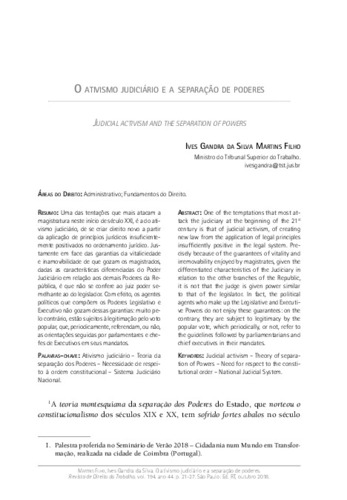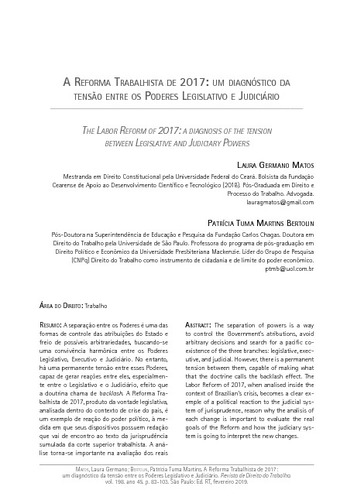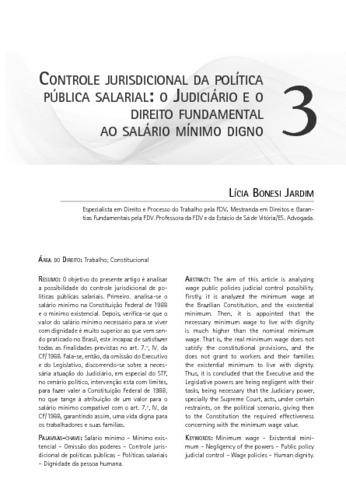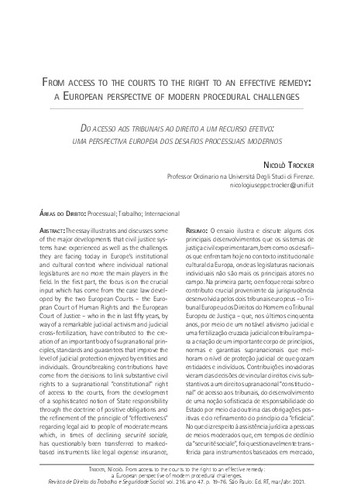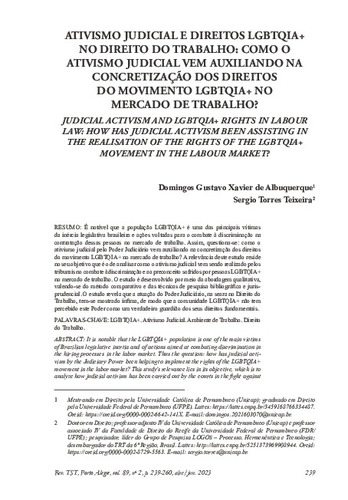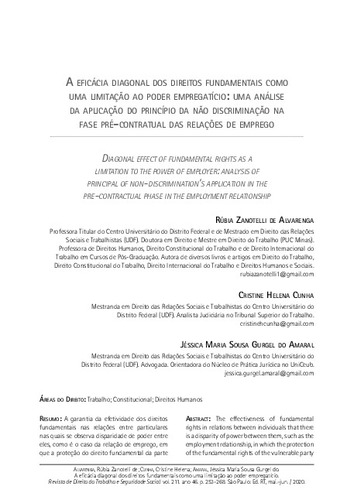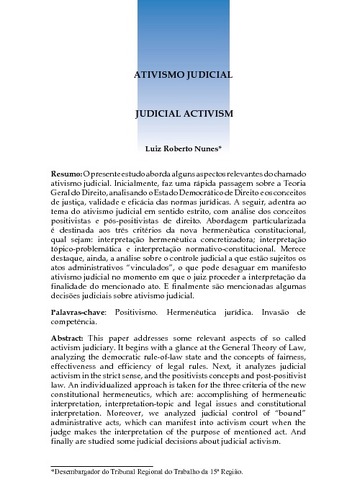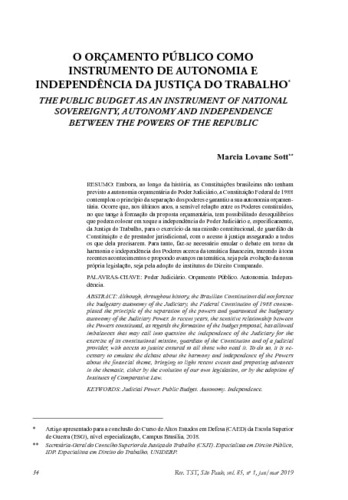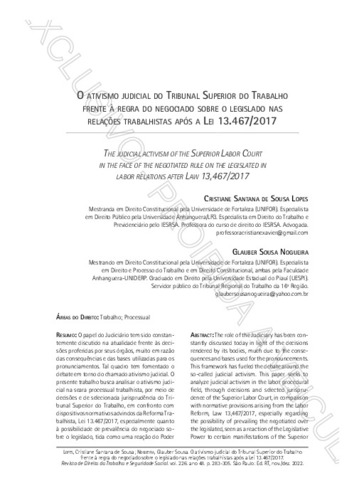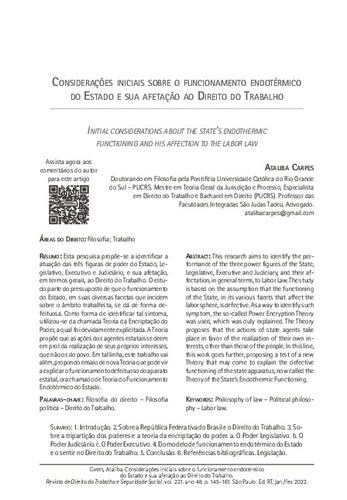Mostrar el registro sencillo del ítem
Artigo de periódico
O ativismo judiciário e a separação de poderes
| dc.contributor.author | Martins Filho, Ives Gandra da Silva | |
| dc.date.accessioned | 2019-08-22T18:13:01Z | |
| dc.date.available | 2019-08-22T18:13:01Z | |
| dc.date.issued | 2018-10 | |
| dc.identifier.citation | MARTINS FILHO, Ives Gandra da Silva. O ativismo judiciário e a separação de poderes = Judicial activism and the separation of powers. Revista de direito do trabalho, São Paulo, v. 44, n. 194, p. 21-27, out. 2018. | pt_BR |
| dc.identifier.uri | https://hdl.handle.net/20.500.12178/160973 | |
| dc.description | Informação sobre o autor: Ministro, Tribunal Superior do Trabalho | pt_BR |
| dc.description.abstract | [por] Uma das tentações que mais atacam a magistratura neste início de século XXI, é a do ativismo judiciário, de se criar direito novo a partir da aplicação de princípios jurídicos insuficientemente positivados no ordenamento jurídico. Justamente em face das garantias da vitaliciedade e inamovibilidade de que gozam os magistrados, dadas as características diferenciadas do Poder Judiciário em relação aos demais Poderes da República, é que não se confere ao juiz poder semelhante ao do legislador. Com efeito, os agentes políticos que compõem os Poderes Legislativo e Executivo não gozam dessas garantias: muito pelo contrário, estão sujeitos à legitimação pelo voto popular, que, periodicamente, referendam, ou não, as orientações seguidas por parlamentares e chefes de Executivos em seus mandatos. | pt_BR |
| dc.description.abstract | [eng] One of the temptations that most attack the judiciary at the beginning of the 21st century is that of judicial activism, of creating new law from the application of legal principles insufficiently positive in the legal system. Precisely because of the guarantees of vitality and irremovability enjoyed by magistrates, given the differentiated characteristics of the Judiciary in relation to the other branches of the Republic, it is not that the judge is given power similar to that of the legislator. In fact, the political agents who make up the Legislative and Executive Powers do not enjoy these guarantees: on the contrary, they are subject to legitimacy by the popular vote, which periodically, or not, refer to the guidelines followed by parliamentarians and chief executives in their mandates. | pt_BR |
| dc.language.iso | pt_BR | pt_BR |
| dc.relation.ispartof | Revista de direito do trabalho: vol. 44, n. 194 (out. 2018) | pt_BR |
| dc.subject | Ativismo judicial, Brasil | pt_BR |
| dc.subject | Separação de poderes, Brasil | pt_BR |
| dc.subject | Sistema judiciário, Brasil | pt_BR |
| dc.title | O ativismo judiciário e a separação de poderes | pt_BR |
| dc.title.alternative | Judicial activism and the separation of powers | pt_BR |
| dc.type.genre | Artigo de periódico | pt_BR |
| dc.identifier.rvbisys | 001134423 | |
| dc.relation.ispartoflink | https://hdl.handle.net/20.500.12178/160430 | pt_BR |


